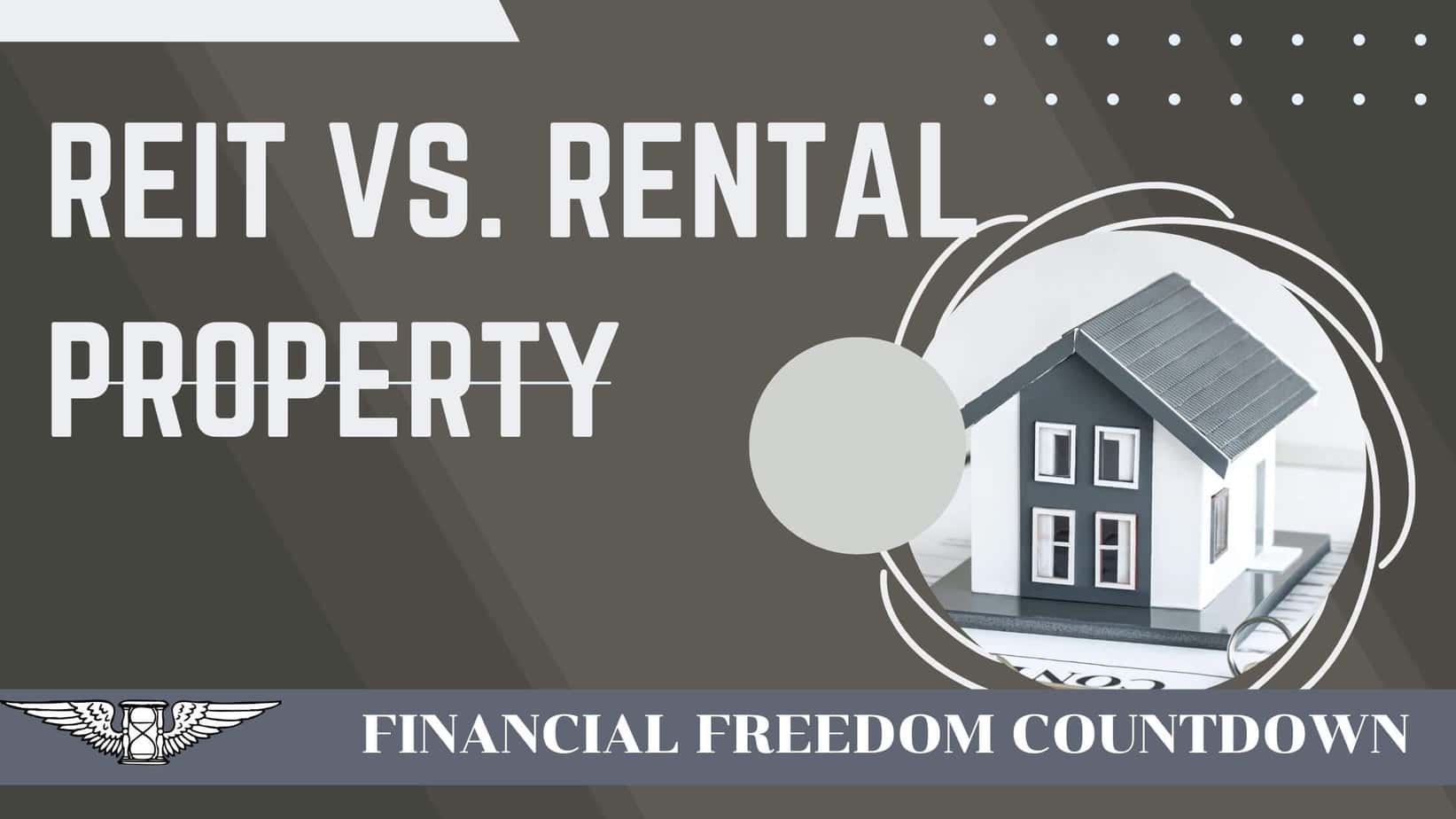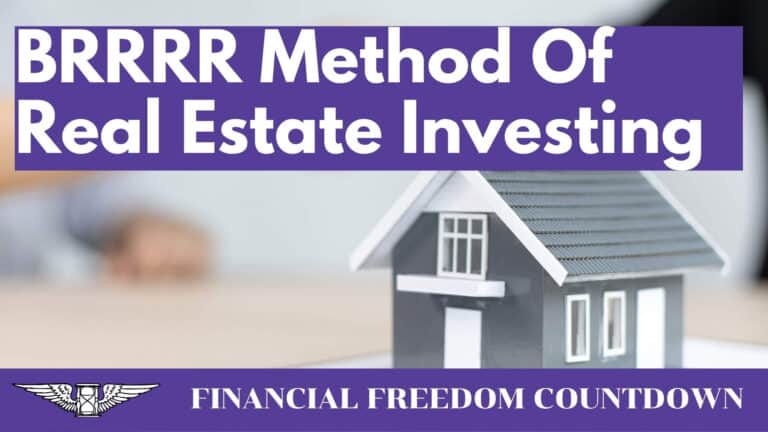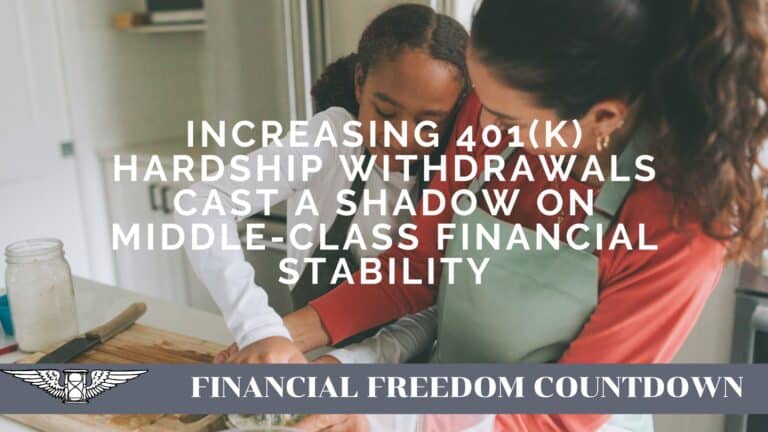REIT vs. Rental Property: What Is a Better Investment?

Are you interested in building wealth by investing in real estate? One of the most popular real estate investment questions is whether to invest in a REIT or a rental property. There are several differences between the two options, from the initial purchase and taxes to how they generate income or appreciation over time. We will also compare the risks of each investment so that you can decide which option would best meet your financial goals.
What Is a REIT
Real estate investment trusts or REITs own, operate, or finance income-producing real estate across many property sectors. The real estate investment trust is a way to invest in real estate passively.
REITs allow anyone to invest in real estate assets by purchasing individual company stock or through a mutual or exchange-traded fund (ETF). The stockholder of a REIT earns a share of the income produced without having to go out and buy, manage, or sell the property.
It is almost real estate investing by proxy, as you invest in the company that does the day-to-day management of handling a real estate portfolio.
Types of REITs
Equity REITs
Equity REIT is the most prevalent type of REIT. Equity REITs own or operate income-producing real estate like shopping malls, commercial real estate, health care facilities, apartment buildings, warehouses, office buildings, cellphone towers, and hotels.
The publicly traded REITs are either index funds from the prominent fund families like Vanguard, Schwab, and Fidelity or certain niche REITs investing in only specific real estate sectors such as office space, self-storage, data centers, malls, apartment buildings, cellphone tower REITs or timber REITs. Some may be localized in specific geographic locations, such as Midwest or REITs in California.
Mortgage REITs
Mortgage REITs (mREITs) only provide financing for income-producing real estate by borrowing money at low short-term interest rates and purchasing mortgages that pay more excellent long-term interest rates. The difference between the two rates is the Mortgage REIT’s profit. Mortgage REITs don’t own or operate real estate property.
Unlike traditional equity REITs, mREITs fluctuate wildly based on interest rates. Also, mortgage REITs are highly leveraged. The risk with mREITs is sudden changes in the mortgage-backed securities (MBS) market, leading to massive losses or bankruptcy.
Hybrid REITs
A hybrid REIT is a real estate investment trust company that effectively combines equity and mortgage REITs. They own and manage properties collecting rents and also invest in mortgage securities. Hybrid REITs try to profit from rising and falling interest-rate environments by investing in actual properties and mortgages.
Public Non-listed REITs
Public non-listed REITs are registered with the SEC and are therefore regulated, but they are not traded on public exchanges. They operate like listed REITs nearly every other way. Still, since they do not sell publicly, investors must purchase shares directly from the REIT’s management company through its real estate syndication platform or a third-party broker-dealer.
Also, public non-listed REITs are still required to make regular, periodic regulatory filings. Public non-listed REITs, however, are open to non-accredited investors.
Private REITs
Private REITs are exempt from SEC registration and do not trade on national stock exchanges. Private REITs are typically only available to individuals meeting accredited investor qualifications.
Streitwise, available for accredited and non-accredited investors, is the most common example of a private non-traded REIT.
One of the primary goals of a REIT is to engage in property management. There are several jobs available in real estate investment trusts that ensure the facility’s smooth and efficient operation. As experts in real estate management, a real estate investment trust is expected to be able to provide services for its tenants.
What Is a Rental Property
Investing in a rental property is relatively self-explanatory. Investors buy residential properties like a house, apartment buildings, or condos and rent them out to tenants. The tenant will be expected to pay your rent regularly. In exchange for this regular cash flow, you will be expected to maintain the property and ensure that a renter has everything they need to enjoy the building.
Ideally, investors should evaluate a rental property and consider its profitability metrics. Unfortunately, most investors end up as accidental landlords. They purchase a starter home, upgrade to their forever home, and often rent out their previous home. They may either learn the basics of being a landlord and self-manage or hire a property manager.
Differences Between REIT vs. Investing in Rental Property
| REIT | Rental Property | |
|---|---|---|
| Experience needed | Low since totally hands-off and index driven | High to select a good deal, close and operate the property |
| Types of deals | Equity | Equity |
| Direct Control | You can pick a REIT but you do not have the ability to select a particular property or influence the management or sale of the properties within the REIT | You have complete control over selecting the property, the financing options, the tenants, the management, the expenses associated with the property and the final sale. |
| Active or Passive | Totally passive | The IRS considers rental property as passive investment for taxation purposes. But rental properties are active in terms of effort and time due to the level of involvement required in all stages of the investment. |
| Cash flow | At least quarterly while some pay monthly | Monthly |
| Minimum investment | $10 can buy fractions via a platform such as M1Finance | Down payment and closing costs required |
| Ongoing costs | None except negligible ETF expense ratios | Rental repair expenses |
| Availability | Available to everyone due to low costs | Highly restricted due to higher minimum investments and ongoing costs |
| Deal flow | N/A since index ETF is responsible | Low since it is harder for an individual to source several deals. Also limited by geography. |
| Diversification | High since each publicly traded REIT owns several properties. | Low since the high minimum investments reduce opportunities for other investments. |
| Deal selection | REITs don’t let you invest in individual properties | Ability to select specific deals. |
| Liquidity | Very liquid as you can sell the ETF anytime on any exchange | Very low unless you are willing to sell at fire-sale prices |
| Ability to use as collateral | REITs can be used as collateral similar to stocks | Rental property can be used as collateral depending on the equity in the property |
| Leverage | REIT investors do not receive any benefits of the leverage used | Rental property owners can use high leverage when purchasing investment properties |
| Tax benefits | Low since REITs have high dividends which are taxed at income tax rates | Highest. You can take advantage of all the tax benefits such as writing off property taxes, repairs, mortgage interest, expenses, taking depreciation, utilizing QBI and 1031 exchanges |
| Self Directed IRA (SD IRA) | Opportunity to use SD IRA | Not advisable to use SD IRA for rental properties due to the risk of prohibited transactions. |
| Profit potential | Lower profit potential since REITs have limited tax benefits | Highest since you can select and manage all aspects of the deal and avail of the maximum tax advantages of real estate investing. |
| Liability | Investors in a REIT generally are not liable for any of the issues the REITs may encounter | Highest exposure since you are ultimately in control of the property and all the decisions. Risk can be mitigated through appropriate insurance, LLCs and following the local regulations. |
Advantages of Investing in REITs
If you wonder why REITs are a good investment, REITs have some essential characteristics that make them unique. The pros of REIT investing are
No Corporate Tax
Based on IRS laws, a REIT needs to invest at least 75% of its assets in real estate and pay 90% of its taxable income as dividends. A company qualifying as a REIT then gets a tax break of ZERO corporate tax.
The absence of corporate tax is a considerable advantage compared to regular stocks.
Take Apple, for example, which has had a great home run as part of my moonshot portfolio. Based on its annual profit, it pays corporate tax. Then it pays a dividend to its shareholders. When I receive the dividend, I pay taxes on it.
REITs avoid double taxation, which means more money in my pocket.
High Dividends
Since REITs are supposed to distribute 90% of their income as dividends, most REITs provide a higher dividend than other companies. Individuals wary of the 4% Safe Withdrawal Rate rule and the retirement calculators prefer the above-average REIT dividend yield to fund their lifestyle. The real estate passive income in the form of dividends can fund essential lifestyle expenses.
Asset Diversification
Part of a prudent asset allocation strategy is to be diversified into several asset classes. REITs provide an additional asset for diversification compared to a vanilla stock-bond allocation.
Sector Diversification
Crowdfunded real estate requires at least a $1,000 investment in a single property. To be sufficiently diversified, it is better to at least invest in 5 different properties. Depending on your average net worth, committing large amounts might be challenging.
With REITs, you benefit from diversification across several properties for relatively smaller amounts. You can buy publicly-traded REITs using no-fee platforms like M1 Finance for as low as $10. Check out my M1 Finance review for more details on dollar-cost averaging your REIT purchases. The large fund families like Vanguard, Schwab, and Fidelity all have Real estate index ETFs trading under the following ticker symbols – VNQ, SCHH, and FREL, respectively.
Hassle-Free Real Estate Exposure
Another factor favoring REITs is the real estate exposure combined with simplicity. REITs are a hassle-free way to have exposure to real estate. You don’t have to deal with tenants or toilets.
Of course, you lose some of the benefits of real estate, but REITs fit the bill for individuals looking for simplicity in exposure to this unique asset class.
Access To Different Real Estate Niches
With a REIT, you can get specific and niche down to invest in only commercial office buildings, hospital REITs, hotel REITs, warehouse REITs, cell tower REITs, hospitality REITs, or medical REITs. Or even REITs related to specific geographic areas, such as Empire State Realty Trust, which owns the iconic Empire State Building and other commercial real estate.
Liquidity
Since publicly traded REITs are traded like stocks, you have similar liquidity when investing in REITs. Your checklist for real estate crowdfunding investments should consider the duration your funds would be tied up. Crowdfunded real estate typically is not considered liquid if you need to withdraw your funds at short notice.
Comparable Total Returns
Besides dividends, REITs have the potential for capital appreciation as the value of their underlying assets grows. Several REITs have generated total returns (dividends and price appreciation combined) that have kept pace with the stock market returns.
Drawbacks of Investing in REITs
Now that we looked at the benefits of investing in REITs, let us look at the cons of investing in REITs
Limited Tax Benefit
When you invest in real estate directly or through a Real Estate Syndication, you get many tax benefits such as depreciation, cost segregation, 1031 exchanges, opportunity zones credit, etc. It is more challenging to structure these benefits in public Equity REITs. While they claim depreciation on their own to reduce tax liability, it doesn’t help lower your tax bill. Private REITs and public non-traded REITs can claim and pass the tax benefits to you.
Dividend Taxation
As per the IRS rules, REIT dividends are taxed at the same rate as ordinary income. While REIT dividends benefit investors who prefer to use them to fund their lifestyle, you pay higher tax rates on dividends than capital gains tax rates.
As long as you are in a lower tax bracket, the taxation of dividends should not be an issue.
One way to avoid the taxation of dividends is to follow the rules of asset location and buy REITs in a tax-protected account such as a Roth or IRA when in a higher tax bracket. Once your tax bracket is lower in retirement, you can buy the REITs in a taxable account.
Interest Rate Sensitivity
As interest rates rise, publicly-traded REITs risk losing value since investment capital flows into bonds.
When interest rates are low, investors tolerate REITs’ real estate investment risks to obtain better returns. Investors gravitate toward risk-free investments like I-Bonds or T-Bills when interest rates rise. Given that we have been in a long-term declining interest rate trend for 40 years, I am not too worried about rising interest rates in the U.S.
Rising inflation could force the Fed to increase the interest rate. In such a scenario, you have to assess the impact on your REITs. For example, if inflation rises, my residential real estate REITs should technically increase rents and pass the additional money.
When investing in all asset classes, including REITs, dollar-cost averaging is a great way to reduce interest rate fluctuations.
Advantages of a Rental Property
When done right, owning and operating a rental property has some serious financial advantages.
Predictable Monthly Rental Income
You’ll be able to collect rent in the form of monthly rental payments that will create monthly cash flow. These rental payments can be very lucrative and help you pay your mortgage, property taxes, and insurance and make passive real estate income. If your property is already paid off, you can save money.
Potential Appreciation Benefits
Buying rental property can potentially lead to significant gains when you sell your property. As long as you buy the correct type of property, maintain your property, and do what is necessary to keep your property marketable and up-to-date, you will eventually be able to sell your home and likely turn a profit.
Real estate investments tend to appreciate over time, and an excellent investment will enable you to reap extensive financial rewards. As such, real estate properties thus allow you to monetize your purchase in multiple ways – and in ways that a REIT may not be able to assist you with.
Tax Benefits
Owning real estate assets also tends to come with tax benefits. You must check with a tax expert to understand how specific tax benefits may apply to you. Still, between depreciation, business tax deductions, QBI, deferring tax gains with 1031 exchanges, and more, you can reduce your overall tax bill.
Learn Valuable Skills
Finally, owning real estate gives you the chance to expand. The skills you learn when evaluating, buying, marketing, and managing one rental property are transferrable to other jobs and are considered high-income skills.
Once you own a rental property, you can work with others and save up enough money to make another purchase – then another – then another. As such, the nature of owning a real estate market gives you the chance to expand your real estate business.
Disadvantages of Investing in a Rental Property
Owning a rental property does come with real challenges.
It Involves Time and Effort
Owning a rental property is a lot of work! When you own a rental property, you must monitor several regulations, manage payments, market your property, handle regular maintenance, and more. You may face significant financial challenges if you lack the necessary skills in any of these areas.
Alternatively, you can seek a professional property manager to help you manage your property portfolio, handle maintenance, and deal with tenants. However, this can be very expensive and potentially cut into any financial gains you make.
High Cost of Entry
Furthermore, there is a very high barrier to entry. Buying a home and selling it means that you have to save up for a down payment and make regular monthly payments – which may be in addition to your existing home. Buying rental properties, as noted above, means a lot of work, and some relatively specialized work, as you will have to know where to buy the property and make sure that you buy an excellent rental property.
Risk to Rental Property Ownership
There is always the potential for a catastrophic disaster. Owning a rental property may mean you are always one lousy tenant or catastrophe away from losing everything. Of course, you must purchase insurance to cover you from a loss, but no insurance guarantees 100% replacement.
Furthermore, there is always the possibility of a legal challenge that can take time, cause stress, and ultimately cost you thousands of dollars in legal bills and judgments against you.
Are REITs Better Than Rental Property
If you prefer to avoid finding tenants or performing maintenance, REITs could be a better option since they are passive investments. However, with REITs, you don’t have control over the performance of the underlying assets and the management competence of the REIT as a whole.
In other words, you don’t have to put in nearly as much effort, but you also lose control over the performance of the asset, and your profits could be lower. Also, REITs are ultimately at the mercy of the stock market and can be as volatile as stocks compared to investment in a rental property.
Should You Pick REIT vs. Rental Property for Investment
Making a real estate investment can significantly boost your financial portfolio. Real estate investments can help you generate additional passive income, achieve specific tax advantages, and increase your average net worth as a property that gains value over time. However, when it comes to real estate, you have many options.
So, what’s better, a REIT or a rental property? Like every other decision that touches your investment portfolio, that is highly personal. Do you have the time, expertise, and financial resources to manage a real estate investment portfolio? Do you have the capital for potential risk in a real estate transaction? Are you ready to deal with all the stress of collecting monthly rental income? These are highly personal decisions. Ultimately, the answer to these questions comes down to your risk tolerance and comfort level with REIT investing or rental property investing.

John Dealbreuin came from a third world country to the US with only $1,000 not knowing anyone; guided by an immigrant dream. In 12 years, he achieved his retirement number.
He started Financial Freedom Countdown to help everyone think differently about their financial challenges and live their best lives. John resides in the San Francisco Bay Area enjoying nature trails and weight training.
Here are his recommended tools
M1 Finance: John compared M1 Finance against Vanguard, Schwab, Fidelity, Wealthfront and Betterment to find the perfect investment platform. He uses it due to zero fees, very low minimums, automated investment with automatic rebalancing. The pre-built asset allocations and fractional shares helps one get started right away.
Personal Capital: This is a free tool John uses to track his net worth on a regular basis and as a retirement planner. It also alerts him wrt hidden fees and has a budget tracker included.
Streitwise is available for accredited and non-accredited investors. They have one of the lowest fees and high “skin in the game,” with over $5M of capital invested by founders in the deals. It is also open to foreign/non-USA investor. Minimum investment is $5,000.
Platforms like Yieldstreet provide investment options in art, legal, structured notes, venture capital, etc. They also have fixed-income portfolios spread across multiple asset classes with a single investment with low minimums of $10,000.







I have found that people are VERY opinionated on this topic. There seem to be very few who are in the middle ground–they are either on team rental property OR team REIT, but they don’t play for both teams. You do a great job of analyzing the differences and advantages. Thank you!